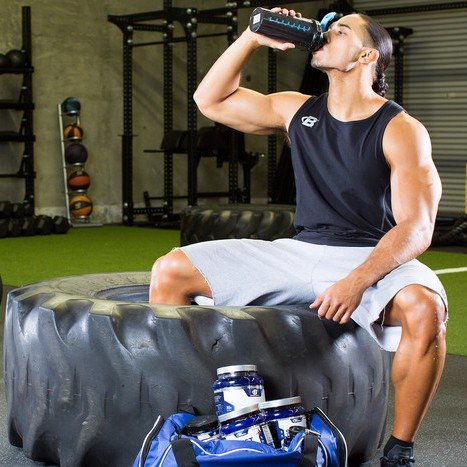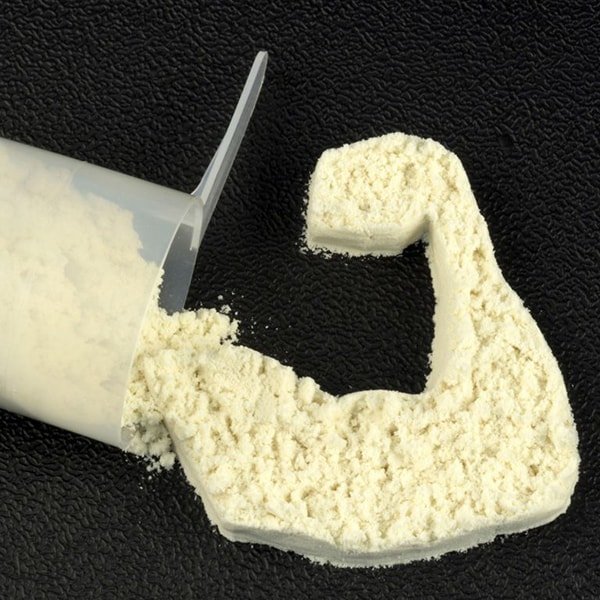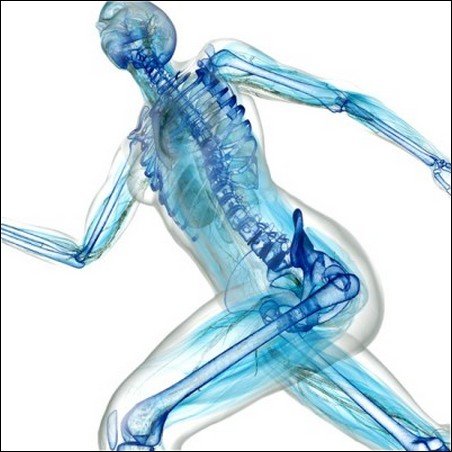While some supplements are expensive, not every muscle-boosting or fat-burning product causes sticker shock. In fact, some of the most effective, best-researched products on the market are relatively inexpensive. For less than $75, you can grab four of the soundest supplements on the market to support your nutrition and training goals.
Start investing in yourself today!
1. Creatine Monohydrate
Creatine—particularly creatine monohydrate—is the most extensively studied sports nutrition supplement available, and for good reason. It's been shown to have a profound impact on muscle and strength gains, enhance aerobic performance and recovery, enhance bone mineral density, and protect cognitive decline with age. These are just some of the reasons our science editor, Krissy "Creatine" Kendall, PhD, thinks everyone should be taking creatine.
In addition to physique and performance goals, another major benefit of creatine monohydrate that often goes unnoticed is its cost. Not only is it wildly effective, it's also wildly inexpensive. You can find creatine monohydrate available for between 12-15 cents per 5-gram serving. A 90-day supply will cost you anywhere from $11-13. That's the price of a movie!
Average cost: $12 for a 90-serving bottle
2. Omega-3 (Fish Oil) Supplement
The term "omega-3" refers to a subclass of essential fatty acids that cannot be made by the body and must be obtained by other food or supplementation. There are three types:
- Alpha-linolenic acid (ALA)
- Eicosapentaenoic acid (EPA)
- Docosahexaenoic acid (DHA)
EPA and DHA have the most profound effect on your health. These healthy fats might play an integral role in fighting full-body, exercise-induced inflammation and keeping your blood pressure and triglyceride levels within a normal range. They might also increase the benefits of regular exercise. In a study published in the American Journal of Clinical Nutrition, researchers split subjects into four groups. Each received one of the following combinations of treatment: sunflower oil (omega-6) only, sunflower oil and exercise, omega-3 only, or omega-3 plus exercise. Researchers observed the greatest improvement in both blood cholesterol and body-fat levels in the "omega-3 plus exercise" group (where exercise included three days of brisk walking for 45 minutes). They hypothesized that the combination of omega-3s and exercise further drove weight loss by increasing rates of fat oxidation during exercise, resulting in less fat stored and lower body-fat values compared to the other three groups.
While you can eat foods high in omega-3 fats (think salmon, cod, herring, walnuts, and flaxseed), you'll have to eat (and spend) quite a bit to make sure you're consistently ingesting an adequate amount, which Rudy Mawer MS, CISSN, suggests to be 1,500-3,000 milligrams of EPA and DHA per day. To help you reach that daily goal without spending all your hard-earned money, why not supplement with an uber-cheap fish oil supplement to fill the gap? Rather than paying $15-30 per pound of salmon, you could pay 25-35 cents per efficacious dose of omega-3 fats.
Average cost: $15-20 per 90-serving bottle
3. Vitamin D-3
It's estimated that over one billion people are deficient in vitamin D. Vitamin-D status is influenced by factors such as sun exposure, location relative to the equator, skin pigmentation, and sunscreen usage. Although minimal amounts can be found in food such as salmon, herring, eggs, milk, cheese, and mushrooms, that isn't enough to meet daily requirements most of the time, which range from 600-2,000 international units (IUs), based on age.
Supplementation can be advantageous for a slew of reasons. Vitamin D plays an integral role in bone health and bone strength, and it may also play a critical role in muscle strength, exercise performance, and body composition. And adequate vitamin-D status has been linked to everything from supporting brain and heart health to a reduced chance of accumulating abdominal fat.
Before you purchase just any old vitamin-D supplement, have your vitamin-D levels checked by your physician. If your levels are below where they should be, talk to your physician about supplementing with 2,000-5,000 IU of vitamin D-3 daily. It's important that you chose vitamin D-3 (versus D-2), because it's the most bioavailable form. It is also the form used most in clinical trials.
Average cost: $10 per 120-count bottle of 5,000 IU softgels
4. Whey Protein
Whey protein delivers more leucine (the amino acid with the greatest impact on protein synthesis) per serving than any other protein source. This makes it the gold standard of protein for muscle building and repair. It has a profound impact on appetite, too, which makes it a stellar choice during a dieting phase.
In addition to its muscle-building and hunger-fighting prowess, whey is also highly convenient and versatile. It's powder form makes it easy to travel with and lends itself well to shakes, smoothies, puddings, cookies, and high-protein cakes. For less than a buck per serving, you can get roughly 25 grams of protein. Or, you could spend three or four times the amount on your favorite cut of meat, and still need to season and cook it. Again, the choice is yours.
Average Cost: $25-30 per 2-pound tub
Source: http://www.bodybuilding.com/





